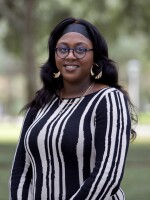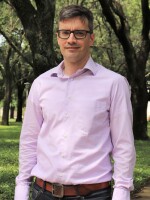Summer learning
Summer break is in full swing with a way to go until school starts up again. This is the time kids can lose a lot of the academic gains they’ve made during the school year.
Nicole Brown is the vice president of community impact for United Way Suncoast, serving Pinellas, Hillsborough, Manatee, Sarasota and DeSoto counties. She oversees the organization’s education programs.
She says the “summer slide” is the time during summer break when students can lose up to two months of educational growth because they’re not engaged in schooling.
“We're also seeing it just kind of play out in what our school districts are telling us and how they're seeing children come back not in the same place that they were at the end of the school year,” Brown said.

Just two books during the summer are enough to keep students engaged. But Brown says summer is a great way to utilize non-traditional methods of learning, like going on adventures in nature or even letting your kids help with grocery shopping.
“I think that it kind of challenges our notion of whether there’s one way to learn,” she said. “I think being out and hands-on learning, so much growth can happen there.”
United Way Suncoast also spends almost $500,000 a year to create 27 summer camp programs, in partnership with 13 different partners. They also provide additional scholarships specifically targeting academic continuation during the summer.
In addition to their summer camps, they also have a summer care program where they work with families in need through their “ALICE” program and provide scholarships so kids in those families can access high-quality summer camps. All of their summer camps provide students with breakfast and lunch, with some even providing dinner.
Families can check out their programs and with their local libraries for free resources. Brown recommends also checking out the National Summer Learning Week, coming up on July 15. All resources to participate are available for free on their website.
Champa Bay and the Scripps National Spelling Bee
Tampa Bay is sometimes called Champa Bay for the sporting champions that call this region home. Think the Buccaneers, or the Lightning. But you can also add spelling bee champions to that list, with the last two winners of the Scripps National Spelling Bee hailing from the region.
The flip side of the summer slide may be the brutal world of competitive spelling, where some kids try to cram 4,000 new words into their brains each day.
Former spelling bee competitor-turned-coach, Scott Remer, helped coach last year’s champion, 12 year-old Dev Shah, who is from Largo.
“There's just something addictive once you've been stung by the bee. There's really kind of no going back. It's a high stakes competition, because one missed letter and you're out. It's kind of all or nothing,” Scott said.
This year’s winner was 12-year-old Bruhat Soma from Tampa. While Scott did not coach Soma, he did coach the runner-up, Faizan Zaki.
“This is the second year that there's been a spell-off at the National Spelling Bee, since the introduction of the spell-off in 2022,” Remer said. “This year was pretty incredible to watch. Bruhat spelled 29 words correctly in 90 seconds, which is basically one every three seconds.”
Remer said he’s a firm believer in taking breaks during the summer. But he says spelling is a very competitive sport and to be really good, it takes regular training and practice.
“It's important to keep in fine fettle, and part of that involves just practicing daily.”

Remer stumbled into spelling in the early 2000s. He began at the school level and just started winning. Then he would just move on to the next level, including going to nationals.
When he reached the cut-off age to compete, age 15, he still felt like he had more to give to the spelling bee world. He tried to convince his mother, who was his coach, to write a book based off everything she taught him. When she wasn’t interested, Remer wrote the book instead.
“I sat down and I started organizing all of the word lists and trying to think about what I had learned about linguistics and all of that. And then 16 months later, I kind of presented her with the manuscript for the first edition of 'Words of Wisdom.'”
Then, he started doing some coaching. One of the girls he was coaching won Cleveland’s regional bee, then the National Spelling Bee. That’s when Remer knew he could make a career out of coaching. It could be his way to give back.
He was 16 when his first student won at nationals.
“I was ecstatic. It was a really exhilarating moment.”
He says kids can learn a lot from competing in the spelling bee.
“It can be brutal. It can be kind of punishing, in a way,” Remer said. “But I think that the kids learn grace under pressure. They learn discipline. And I think they learn a ton about dealing with disappointment, and learning how to be resilient.”
He says the importance of persistence and grit is also essential.
“I've seen a number of spellers to whom this has happened: they don't do as well as they want, or they have a really, really, very disappointing and upsetting showing one year, and they lose heart. And they give up. And they stopped spelling. And that's the only way to guarantee that you're not going to do well.”
His advice to all the spellers out there: just keep pushing.



